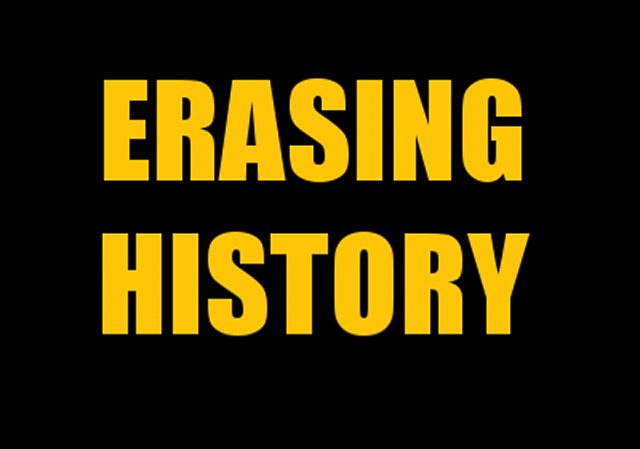Cambridge University Press Drops Term ‘Anglo-Saxon’ From Journal
“All universities in the UK and across the West are decolonizing the curriculum”

Sacrificing history at the altar of progressive politics is a very bad idea.
The College Fix reports:
Cambridge Press drops term ‘Anglo-Saxon’ from journal
Cambridge University Press changed the name of its journal Anglo-Saxon England this spring, but two scholars said the change sends the wrong message.
The publisher said the new name, Early Medieval England and its Neighbors, is part of a series of changes being instituted at the 50-year-old journal.
“The new title reflects the breadth of that scholarly work, and is one part of a broader relaunch of the journal, which is now Open Access, will have more regular publications, and take on an expanded scope,” Cambridge University Press said in a recent statement provided to The College Fix via email.
The goal is “to solidify the journal’s position as the foremost in this rich field,” the publisher said.
The British university publisher also said the term still will be allowed in articles.
“We have not banned the use of the term ‘Anglo-Saxon’, nor are we discouraging its use,” it said. “The journal will continue to welcome and use the term ‘Anglo-Saxon’ as it publishes a broad range of high-quality scholarly research on England, its closest geographic and intellectual neighbors, and their wider cultural contacts from the 5th to the 11th century.”
But Mises Institute research scholar Wanjiru Njoya told The Fix she believes the name change is a part of a “decolonizing” trend in higher education. The Alabama institute advocates for individual freedom and American foundational values.
“Cambridge has been leading the charge to drop the name ‘Anglo-Saxon’ as part of a wider ‘decolonize the curriculum’ movement, but Cambridge is not alone,” Njoya said in a recent email.
“All universities in the UK and across the West are decolonizing the curriculum,” she told The Fix. “This movement began in America some years ago and spread out from there. As you may know, it’s not just medieval history or the classics affected, but all fields of study including the natural sciences.”
Njoya said dropping historical terms is part of revisionist history.
“Changing the name of the Anglo-Saxon journal is one example of how the ‘decolonize’ movement attacks what they call the hegemony of ‘dead white males.’ The ‘decolonizers’ consider Western culture to be white supremacist and patriarchal,” she said.
 DONATE
DONATE
Donations tax deductible
to the full extent allowed by law.









Comments
Decolonize the sciences?
AfroChemistry, The science of Black Life Matter?
Good for them. I was pretty offended by the term. I prefer to be referred to by a moniker with a preposition in it instead of just an adjective or noun. That’s all the rage these days with the wokies.
The Jutes were feeling left out…
I suspect the new emphasis on Afro-Hispanic Medieval England will promote a lot of creativity to make up some woke history, like in the 1619 Project.
From our academic savants:
The term ‘Anglo-Saxon’ implicitly made comparisons to the Normans. You know, those Normans who invaded/colonized England beginning in 1066.
Like the Anglo-Saxons did centuries before.
Like it or not, England had a history of invasions and colonizing. To claim that it did not is to distort history.